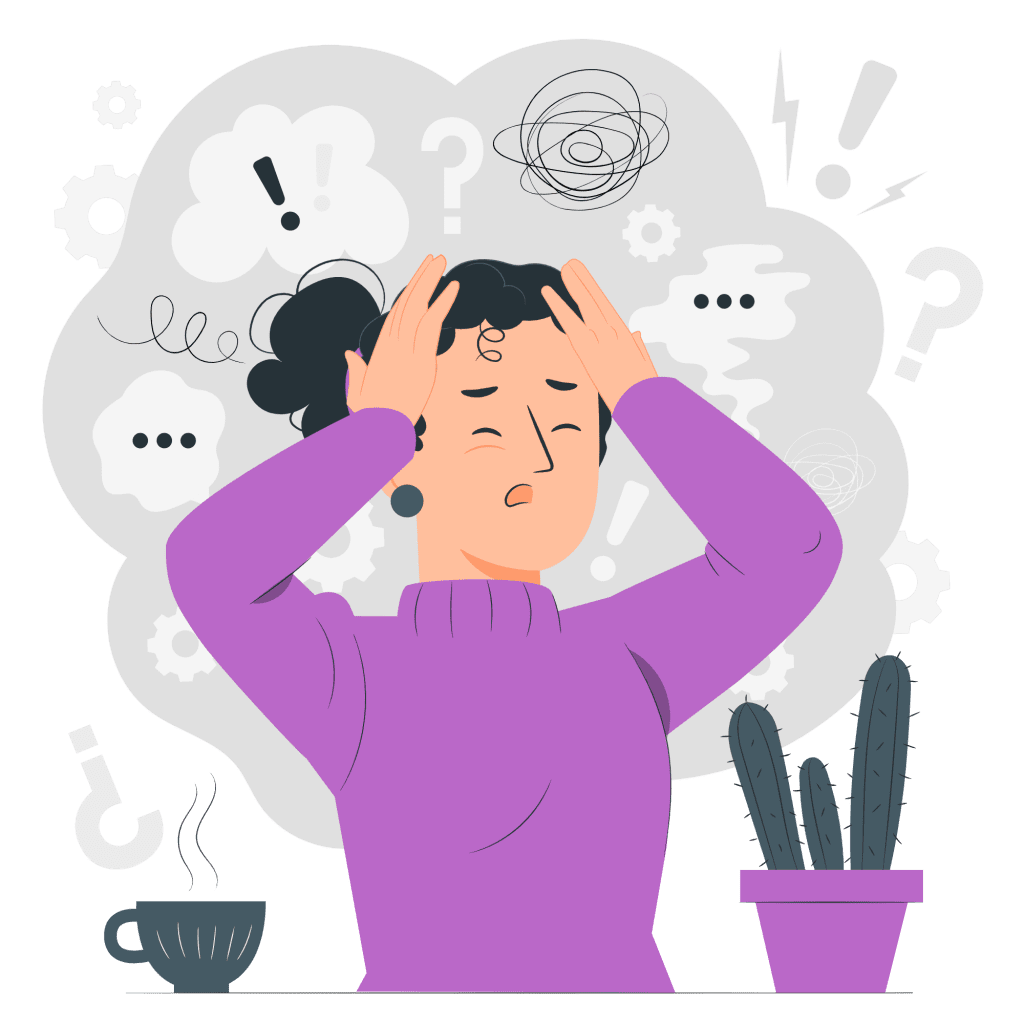Feeling like your job is draining the life out of you? You’re not the only one. According to a survey conducted by McKinsey in 2022, on average, one in four employees report experiencing burnout symptoms. If left unchecked, it can have severe consequences on your physical and mental health, like going through anxiety, depression, or fatigue.
While job burnout can hit even the most dedicated employees, it doesn’t have to be the end of the road. In this article, we’ll discuss how to recognise it, the stages of job burnout, and some tips on how to tackle it.
Recognise the Signs

Knowing the signs of job burnout is crucial to preventing it from becoming a chronic issue. By recognising the signs early on, you can take proactive steps to address the issue and prevent it from becoming a long-term problem. So how do you know when you’re going through a burnout?
Some of the main symptoms are having a negative attitude towards work, dreading entering the office every day, having trouble sleeping, being easily irritated by colleagues and feeling that your work has no purpose. If you notice something that is out of the ordinary in your work performance, take a step back and identify the problem before it becomes a chronic issue.
Stages of Job Burnout

There are 5 stages of job burnout that you should be aware of:
- Honeymoon Phase: In this initial stage, you may feel excited and enthusiastic, still energised and wouldn’t mind skipping a meal or two to get the job done.
- Balancing Act: While the workload increases, you might start to feel stressed and try to balance everything out. Here is likely when you realise you are unable to sleep because of work.
- Chronic Stress: During this stage, you could potentially begin to experience the ongoing stress that can impact the physical and mental health – spending your weekends worrying about what’s to come on Monday.
- Burnout: At this point, it is possible that you may feel completely exhausted, having nothing left to give and may withdraw from your work and personal relationships.
- Enmeshment: In this final stage, burnout becomes a habitual state, a stage where it becomes a default setting. There is a chance that you may not even remember how you started to feel the burnout and will then have lost your sense of purpose.
Tips on Tackling the Issue

Avoiding job burnout is essential in order to maintain a healthy work-life balance and avoiding long-term negative effects on your physical, emotional, and mental well-being. Here are some of the tips to tackle the issue:
- Taking Short Breaks
Whether it’s getting up from your desk and stretching, taking a short walk or even meditating, this can help recharge your batteries and improve your focus. It’s crucial to take extended breaks, such as your lunch break or taking time off for a day or two, to allow yourself ample time to unwind and rejuvenate away from work. - Practice Work-Life Boundaries
It’s important to make time for things outside of work in your life. One way to do this is to make a to-do list for each day and set a time limit for each task. This can help you be more organised and stick to your designated working hours. Also, try to avoid checking work emails or taking work calls after 7 pm to have some time for yourself and your personal life. - Self-Care as Your Daily Habit
Taking care of yourself is important for your overall well-being. You can do this by exercising regularly, having a balanced meal, getting enough sleep, and spending time with your loved ones outside of work. Taking care of your mental health is also crucial to managing your stress levels and preventing burnout. - Seek Support
Talking to a trusted friend, family member, or therapist can help you cope with job-related stress. Joining a support group or seeking out a mentor can also be helpful. If you’re struggling with a specific issue at work, talk to your supervisor or HR representative about possible solutions. - Find Meaning and Purpose
Finding meaning and purpose in your work can help prevent burnout. Identify what motivates you and what you find fulfilling about your job. Set goals for yourself and work towards them. Focus on the positive aspects of your job, and try to cultivate a sense of gratitude for the opportunities you have.
While job burnout is a significant issue that can affect anyone, it’s essential to recognise the signs and take the necessary measures to prevent it from happening and letting it become a bigger problem. It can be challenging having to navigate the demands of work but by following some of these steps, it can go a long way. It’s important to remember that prioritising your self-care is not selfish; rather, it is crucial for both your personal well-being and professional success.






